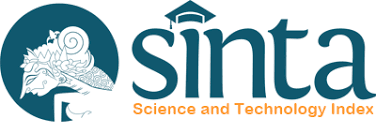Peran Modal Sosial dalam Pendampingan Perhutanan Sosial di Provinsi Maluku
Abstract
Social forestry is a sustainable forest management system as one of the Government's programs in the context of economic equality and reducing poverty levels with a forest target of 12.7 million hectares to be managed by the community. One of the keys to the success of the social forestry program is the availability of social forestry facilitators to facilitate the three social forestry governance systems, namely institutional governance, regional governance, and business governance. The success of social forestry facilitation is not only determined by the quantity of facilitators, but also by the quality of the facilitators. The research was conducted to determine the role of social capital in social forestry facilitation in Maluku Province. As many as 33 respondents from the 2022 facilitators filled out a questionnaire covering three main elements of social capital, namely trust, social networks, and social norms with data analysis using a Likert scale. The results showed that the index number was 91,69% and could be classified in the high assessment category with a total score of 1,180. This shows that social capital has an important role in facilitating social forestry in Maluku Province. Thus, the application of good social capital will be able to empower the community and be very influential in the success of social forestry facilitation.












